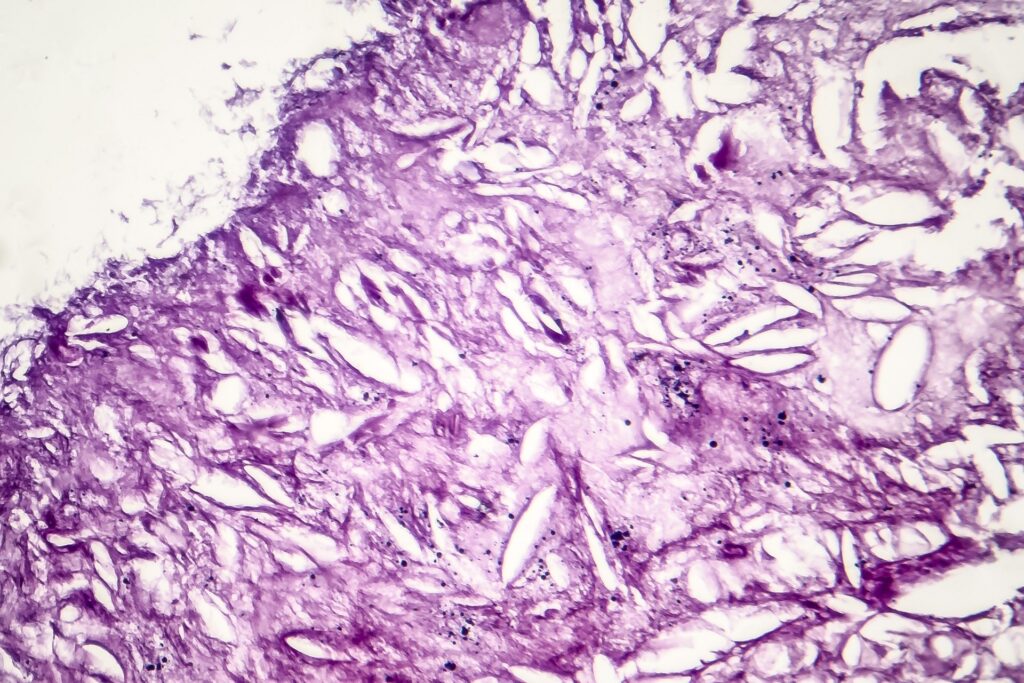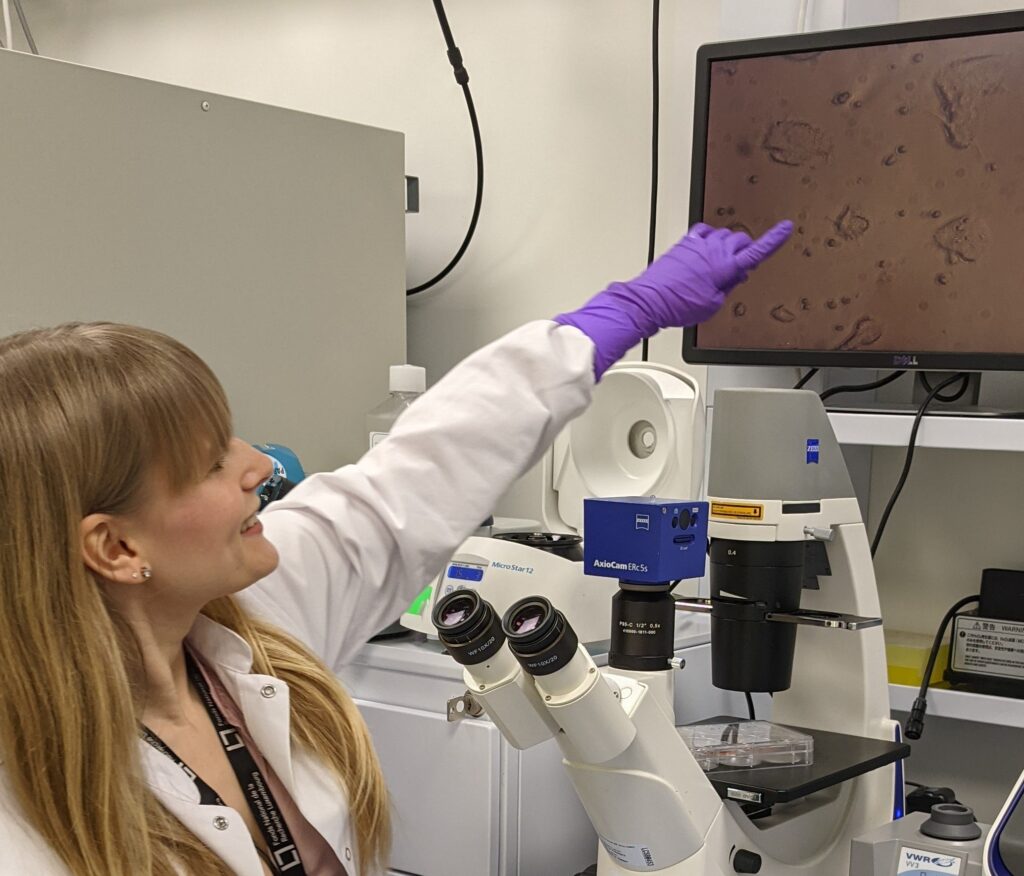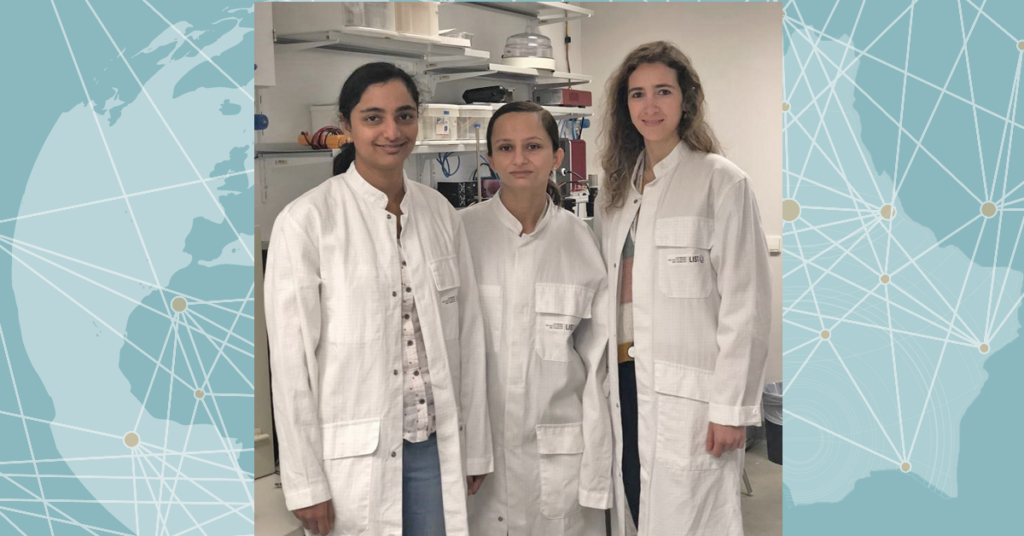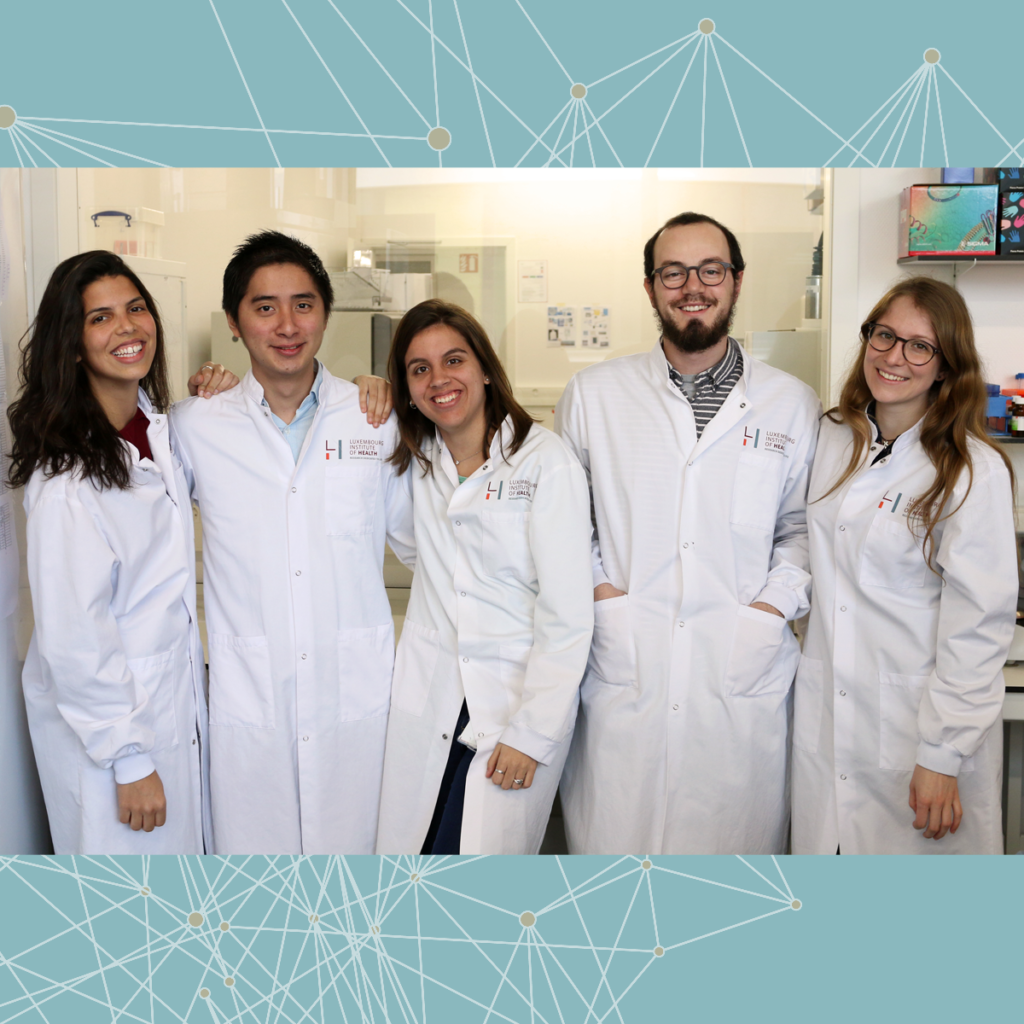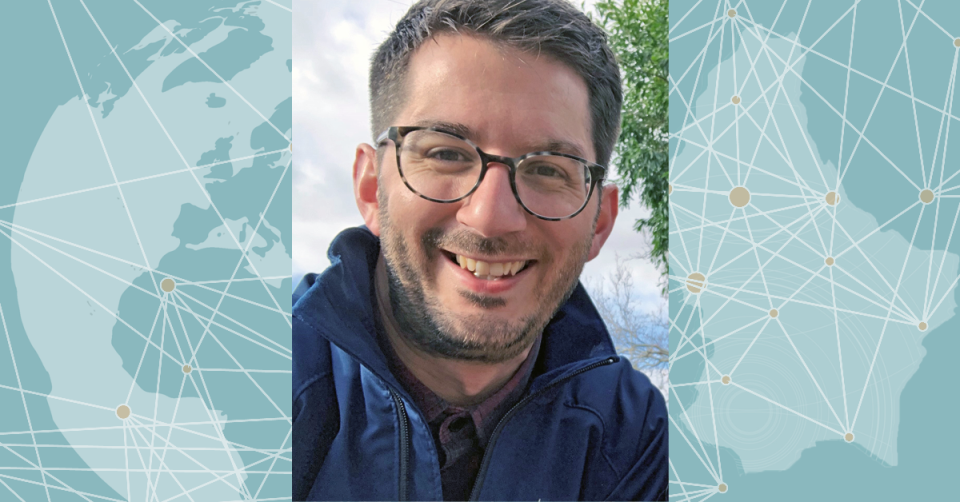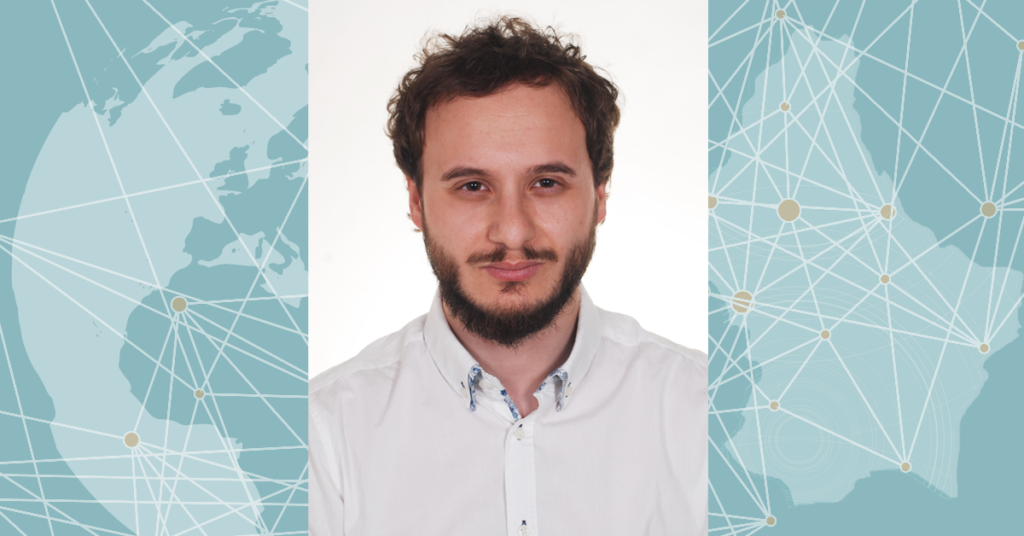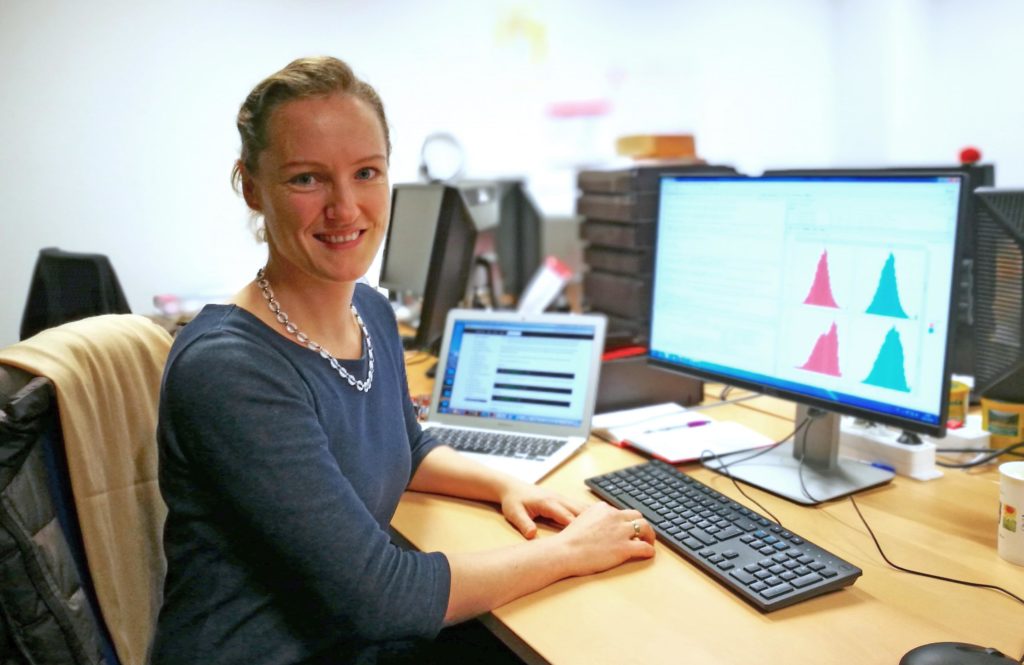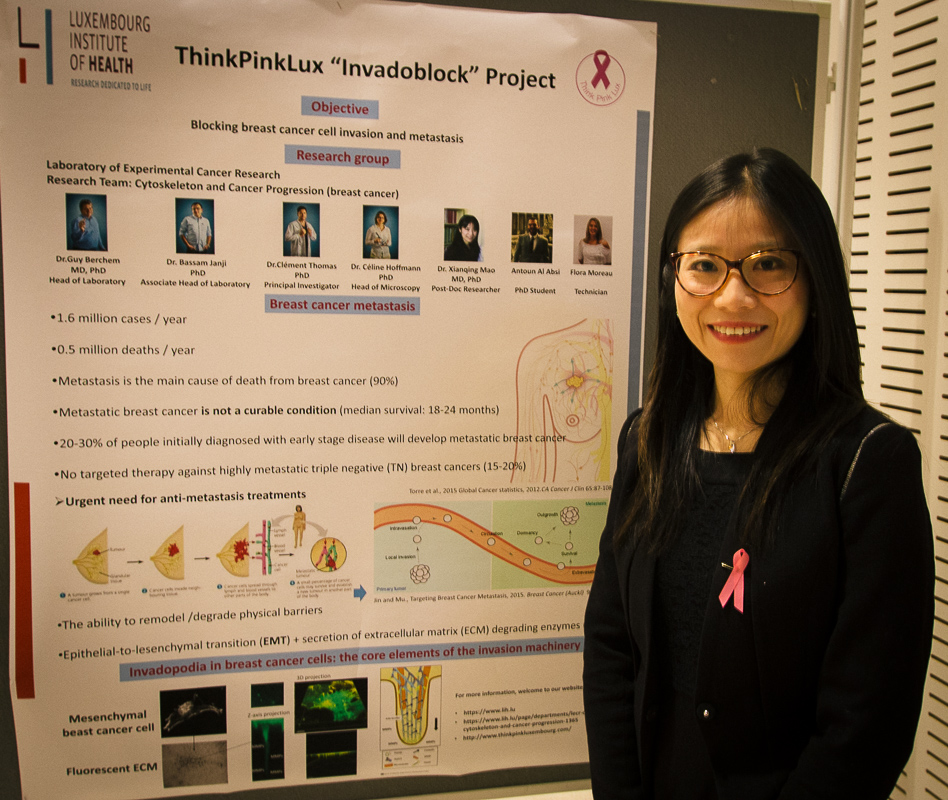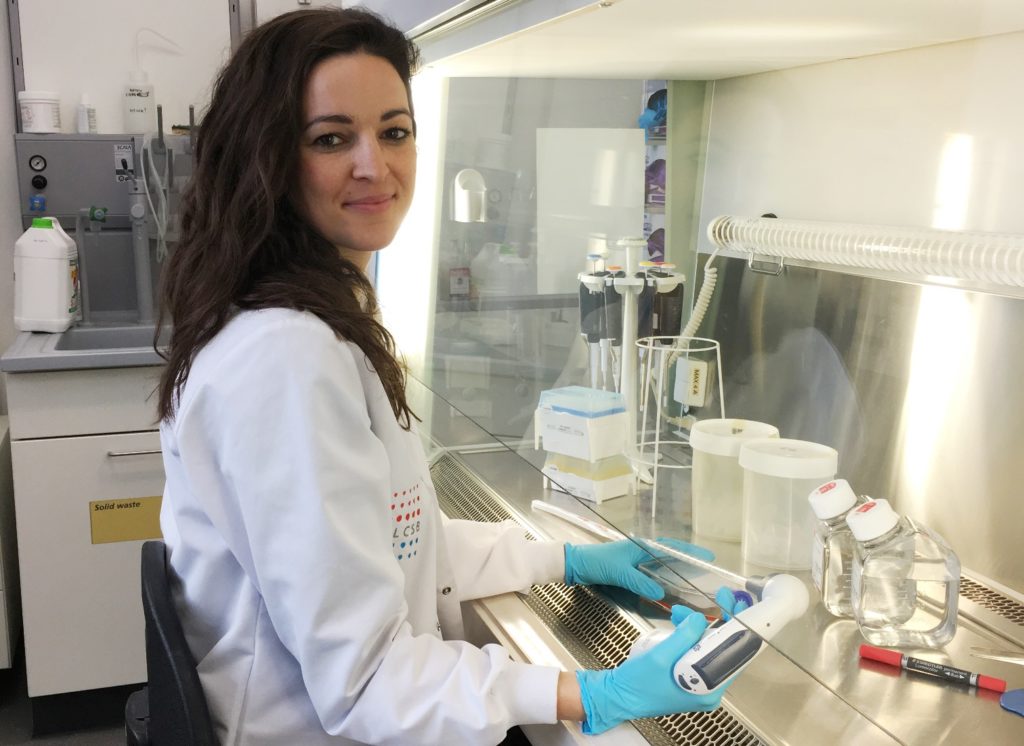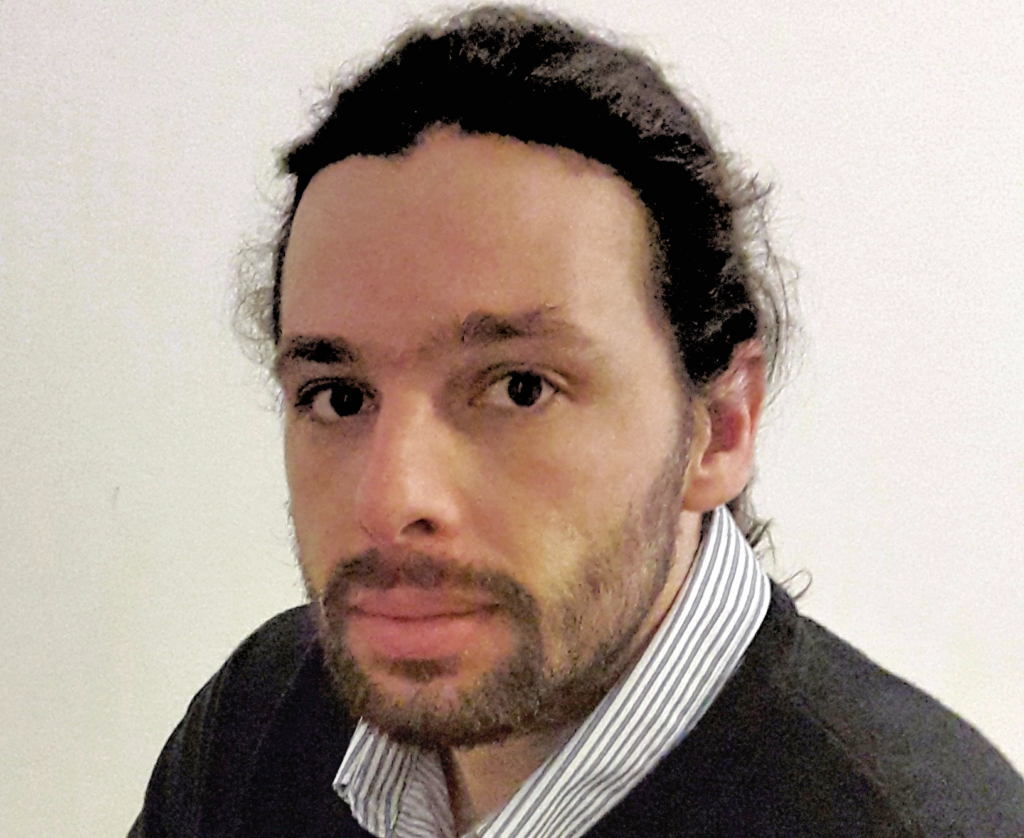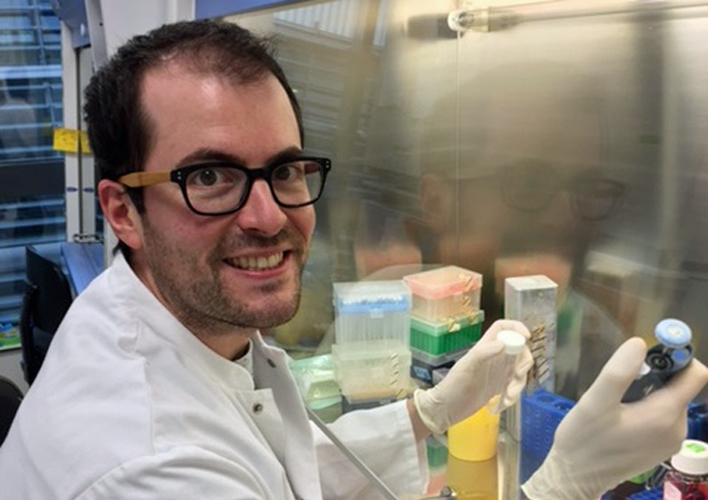Discover FNR highlights about cancer research in Luxembourg.
- All
- Blood cancer
- Brain cancer
- Breast cancer
- Colon cancer
- Skin cancer
June 22, 2021
Melanoma is a rare type of skin cancer, but it is the deadliest type – and incidence is on the rise. Metastatic melanoma has seen a rapid emergence in drug resistance: After a few months, treatment stops working and tumours begin to grow again. Molecular biologists are working to understand why this happens.
March 25, 2021
Neurogenerative diseases and cancer affect millions of people worldwide, especially people over 60. While advances in diagnosis and treatment have been made, there are still many open questions on the path to better treatment and earlier diagnosis. Translational neuroscientist Pauline Mencke studies a gene that is involved both in Parkinson’s disease and the brain cancer Glioblastoma multiforme.
July 16, 2020
Researchers at the Luxembourg Institute of Health (LIH) are developing a novel molecule that binds to and blocks a previously unknown opioid receptor in the brain – holding great promise for the design of alternative therapeutic strategies.
May 28, 2020
In a collaboration with pharma company Sprint Bioscience, researchers at the Luxembourg Institute of Health (LIH), have developed an innovative approach to improve cancer immunotherapy by turning “cold” tumours “hot”.
May 6, 2020
A team of scientists at the Luxembourg Institute of Health (LIH), led by FNR ATTRACT Fellow Prof Dirk Brenner, have discovered a novel mechanism through which the immune system can control autoimmunity and cancer. The findings set a new direction for the development of future treatments of metabolic diseases. In a nod to the significance of the findings, the research graces the cover of the journal ‘Cell Metabolism’.
April 9, 2020
With his interdisciplinary research group, metabolism expert and analytical chemist Johannes Meiser from the Luxembourg Institute of Health (LIH) wants to uncover the role metabolism plays in the spread of cancer. We speak to the German national about his experience going from Postdoc to managing a research group; finding your niche; and the importance of a healthy work environment.
June 14, 2019
Divya Balakrishnan, Dipti Rani and Serena Rollo are women in science working in a field that could have a major impact on how health is managed: In the group of FNR ATTRACT Fellow César Pascual García at the Luxembourg Institute of Science and Technology (LIST), the team works on developing sensors for biochemical applications focusing on medicine.
May 24, 2019
An international, interdisciplinary team of scientists, led by the Luxembourg of Health (LIH), has been able to show that the cells of Glioblastoma – an extremely aggressive type of brain tumour – can adapt to their environment and transform their surface structure. The new insights could help optimise future treatments.
May 24, 2019
Stemming from Italy, Indonesia, Luxembourg, Portugal and Spain, the members of the Experimental & Molecular Immunology Group truly are an international team. In the group of FNR ATTRACT Fellow Prof Dr Dirk Brenner at the Luxembourg Institute of Health (LIH), the team of young researchers investigates different aspects of the immune system with one common goal: Understanding how our immune system is regulated by different mechanisms – and how this knowledge can be used to combat disease.
May 2, 2019
Researchers from the University of Luxembourg have discovered a combination of dietary factors and gut bacteria that inhibits the progression of colorectal cancer. The findings, published in the open-access journal Cell Reports, could help exploit dietary regimens for therapeutic purposes to improve chemotherapy efficacy and reduce toxicity.
April 11, 2019
Senior Postdoc Sebastian Scheer’s thirst for understanding how biological systems work led him to dive into the world of immunology research. After moving from Germany to Canada, the Luxembourg national got the chance to set up his group leader’s new lab in Australia, where his research revolves around the T cell, a key player in the shaping of immune responses.
March 14, 2019
Ernesto Gargiulo has always had a curious and inquisitive disposition, which as a child saw him spending hours outdoors, in a quest to discover. At University, Ernesto’s attention turned to oncology. Set on applying and strengthening his knowledge, the Italian national embarked on a PhD at the Luxembourg Institute of Health (LIH), where he works on characterising exosomes, small extracellular vesicles, linked to cancer development, progression and chemo-resistance.
May 2, 2018
Antoun Al Absi has been fascinated by microscopes ever since his parents gave him one as a child. Unsurprisingly, the Syrian-French national cherishes the long hours spent on the microscope as part of his AFR PhD at the Luxembourg Institute of Health (LIH), where he investigates how tumour cells escape the ‘immune surveillance system’, enabling them to spread to other parts of the body.
April 24, 2018
When Katharina Baum was a teenager, her mother took her to a presentation about the Human Genome Project. Fascinated, she stood up and asked what she would have to do to be able to study genes. Some years and a degree in mathematics later, the German national and mother of two children now splits her time between Luxembourg and Berlin as part of her two postdocs. In her work at the Luxembourg Institute of Health, Katharina combines computer science, maths and biology to identify faulty regulatory mechanisms in cancerous cells.
August 10, 2017
Xianqing Mao comes from a family of professors and doctors and thus has always had a natural interest in science. The Chinese national completed a medical degree, but felt she still had unanswered questions, so she decided to go abroad and took a leap into biomedical research. After stays in France, the UK, the United States and Belgium, Xianqing is now transitioning from junior to senior researcher at the Luxembourg Institute of Health, where she has already been involved in several projects investigating cancer progression.
June 8, 2017
Kacy Greenhalgh has always had an affectation for medicine and health, and how health can be influenced by dietary habits. During her Master studies, the Luxembourg-American national was introduced to FNR ATTRACT Fellow Paul Wilmes and the ‘gut on a chip’, HuMiX. Fascinated by its potential, and how it could be used to study the relation between diet and health, Kacy’s curiosity led her straight to an AFR PhD at the LCSB at the University of Luxembourg.
May 26, 2017
Léon-Charles Tranchevent says he has found the perfect job in being a researcher. Cherishing the freedom and unexpectedness of his line of work, the computational biologist also feels it’s his duty to contribute to the training of the next generation of researchers. The French national has recently begun his AFR Bilateral Postdoc at the Luxembourg Institute of Health in collaboration with Nanyang Technological University (NTU) in Singapore.
March 16, 2017
Pit Ullmann’s interest in natural sciences was piqued in high school. The Luxembourg national went on to study molecular biology at the University of Innsbruck and then found himself desiring a job that would be both interdisciplinary and diversified – fast forward and Pit is now completing his AFR PhD at the University of Luxembourg, where his research group studies why and how colon cancer develops and spreads.
January 29, 2017
Early in 2017, a small exhibition in Luxembourg City highlighted a selection of ‘WiSE – Women in Science and Engineering’. Here we introduce one of the featured scientists, LIH’s Simone Niclou, oncologist and coordinator of CANBIO, one of the 11 Doctoral Training Units funded through the FNR’s PRIDE programme.
BACK TO LETZSCIENCE.LU
Latest FNR cancer research news
28 May 2020
In an international project with pharma company Sprint Bioscience, scientists at the Luxembourg Institute of Health (LIH), led by Dr Bassam Janji, have developed an approach that turns “cold” tumours “hot”, making them responsive to immunotherapy.
30 Jan 2020
Luxembourg Institute of Health (LIH) researchers Dr Anna Golebiewska, and FNR ATTRACT Fellow Dr Johannes Meiser have been awarded the Legs Kanning Prize for their work on cancer research in Luxembourg, presented by the association Action Lions Vaincre le Cancer.
16 Oct 2019
A project looking at the impact of diet on colorectal cancer cells, using ‘HuMiX’, the gut on a chip developed by the lab of FNR ATTRACT Fellow Prof Paul Wilmes at the University of Luxembourg’s LCSB, took home the Healthcare Research Award at the 2019 Luxembourg Healthcare Awards.
04 Apr 2019
Dr Antoun Al Absi has been awarded a prize for his outstanding PhD thesis by the Strasbourg Society of Biology. Dr Al Absi conducted his PhD project at the Luxembourg Institute of Health (LIH), funded by an FNR AFR grant.
31 Oct 2018
A team of researchers at the Luxembourg Institute of Health (LIH), including AFR PhD Antoun Al Absi, have uncovered that breast cancer cells use a molecular shield to protect themselves against the immune system, a discovery which could help pave the way for new cancer treatment options.
18 Oct 2018
Following the 2017/18 FNR ATTRACT Call, Dr Johannes Meiser has been awarded a 1.5 MEUR FNR ATTRACT Starting Grant to set up his own research line in the area of cancer metabolism at the Luxembourg Institute of Health (LIH).
21 Sep 2015
On Friday, 18 September 2015, the FNR and the Fondation Cancer officially put pen to paper and signed an agreement formalising their collaboration to support scientific projects in Luxembourg. The partnership, which runs from 2015 to 2019, will enable the FNR and Fondation Cancer to develop and strengthen their collaboration to support scientific cancer research … Continued

